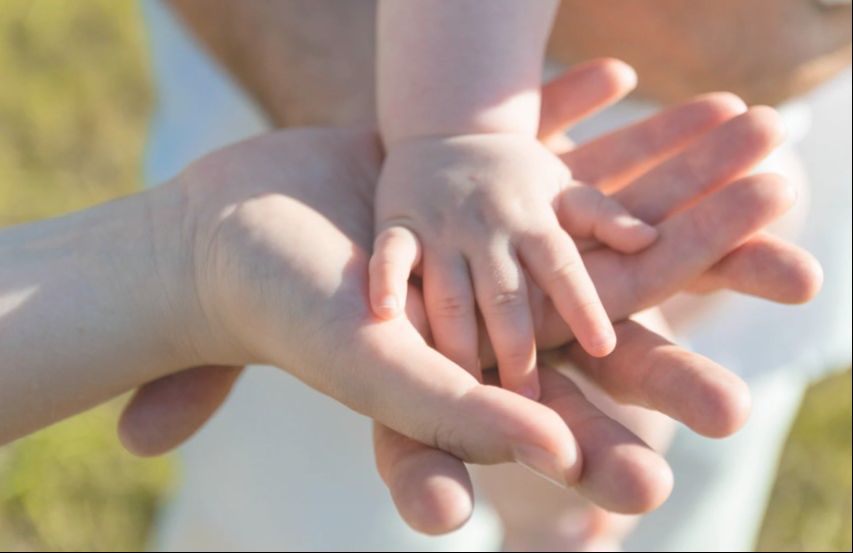This Weeks FREE Lesson
Course One - What does it mean to be a nurturing parent?
This week’s Feature Lesson comes from Course One where we look at what it means to be a Nurturing Parent.
We will look at different models of parenting, how you can discern good advice and make the changes you need to nurture your child from the start.
Purchase the Course
Nurturing Your Toddler

Building a Strong Foundation for Growth and Development -
Toddlers are bundles of energy, curiosity and rapid development.
Introduction
As a parent, you play a crucial role in nurturing your toddler's growth and providing them with a loving and supportive environment. In this lesson we will explore some of the best things you can do to nurture your toddler and foster their overall development.
Foster a Safe and Stimulating Environment
Create a safe and stimulating environment that encourages exploration and learning. You can provide some age-appropriate toys but be careful of their purpose - more about this when we look at play in Module Five of this programme. Offer lots of books and activities that promote sensory experiences and look to stimulate their fine and gross motor skills, along with their cognitive (thinking) development. Now your child is an active toddler, you will also want to make sure that your home is childproofed to prevent accidents and then allow your child to freely explore their surroundings.
Encourage Independence and Self-Help Skills
As your toddler grows, they begin to assert their independence. Encourage their autonomy by offering opportunities for self-help skills. Allow them to dress themselves (with some assistance if needed), encourage them to feed themselves and involve them in simple tasks like picking up toys or helping with household chores. This fosters a sense of competence and self-confidence.
Practice Positive Discipline and Effective Communication
Toddlers are beginning to learn more about boundaries and testing limits. Utilise positive discipline strategies that focus on teaching and guiding rather than punishing. Set clear and consistent expectations, offer redirection and use age-appropriate consequences to teach lessons. Communicate with your toddler using simple language, active listening and empathy to help them express their emotions and understand appropriate behaviour. All the while having realistic expectations of what your toddler is capable of. You can learn more about this in Module Six of this programme.
Encourage Language and Cognitive Development
Toddlers are rapidly developing language skills. Engage in conversations with your toddler, using simple and clear language. Read books together, sing songs and engage in interactive activities that promote language and cognitive development. Offer plenty of opportunities for open-ended play and problem-solving, which help develop creativity, imagination and critical thinking. Remember - their brain is working far quicker than their words can articulate or their body can manage. This comes with some frustrations, so work with your child to find their words.
Provide Emotional Support and Nurturing
Toddlers experience a wide range of emotions as they navigate the world around them. Provide emotional support by actively listening, validating their feelings and offering comfort during moments of distress. Create a nurturing and loving atmosphere where they feel safe expressing their emotions and seeking comfort from you.
Maintain a Consistent Routine
Your toddler is learning so much about this massive, confusing and complex world - that is a lot to take in. They do then thrive on routine and predictability where you can offer it. Establish a consistent daily routine that includes regular mealtimes, nap times and bedtime. Consistency provides a sense of security and helps your toddler anticipate what comes next, reducing anxiety and meltdowns.
Encourage Social Interaction and Playdates
Social interaction is essential for your toddler's development. Arrange playdates with other children their age, enrol them in age-appropriate classes or activities and provide lots of opportunities for socialising with family and friends. You can encourage sharing, cooperation and turn-taking during playtime as you foster their social skills. But a well-established sense of empathy is a long way off yet, so don't expect too much.
Practice Self-Care and Patience
Taking care of your own well-being is crucial to being a nurturing parent. And caring for an active toddler can be exhausting! Ensure you have time for self-care, rest and relaxation. Being patient with yourself and your toddler during challenging moments is important. Remember, parenting is a learning process and no one is perfect. They will be making mistakes - as will you. Seek support from family and friends and join parenting communities.
Conclusion
Nurturing your toddler is an incredible journey filled with love, patience and discovery. By creating a safe and stimulating environment, encouraging independence, practicing positive discipline, fostering language and cognitive development, providing emotional support, maintaining a consistent routine, encouraging social interaction and practicing self-care, you are building a strong foundation for your toddler's growth and development. Embrace the joys and challenges of toddlerhood as you witness your little one blossom into an independent and confident individual.

